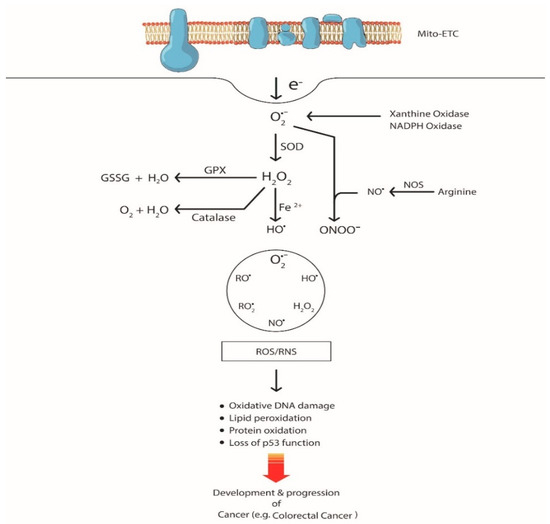Cancers, Vol. 12, Pages 3336: The Role of Oxidative Stress and Its Counteractive Utility in Colorectal Cancer (CRC)
Cancers doi: 10.3390/cancers12113336
Authors: Debasish Basak Mohammad Nasir Uddin Jake Hancock
An altered redox status accompanied by an elevated generation of reactive oxygen/nitrogen species (ROS/RNS) has been implicated in a number of diseases including colorectal cancer (CRC). CRC, being one of the most common cancers worldwide, has been reported to be associated with multiple environmental and lifestyle factors (e.g., dietary habits, obesity, and physical inactivity) and harboring heightened oxidative stress that results in genomic instability. Although under normal condition ROS regulate many signal transduction pathways including cell proliferation and survival, overwhelming of the antioxidant capacity due to metabolic abnormalities and oncogenic signaling leads to a redox adaptation response that imparts drug resistance. Nevertheless, excessive reliance on elevated production of ROS makes the tumor cells increasingly vulnerable to further ROS insults, and the abolition of such drug resistance through redox perturbation could be instrumental to preferentially elimin ate them. The goal of this review is to demonstrate the evidence that links redox stress to the development of CRC and assimilate the most up-to-date information that would facilitate future investigation on CRC-associated redox biology. Concomitantly, we argue that the exploitation of this distinct biochemical property of CRC cells might offer a fresh avenue to effectively eradicate these cells.



Δεν υπάρχουν σχόλια:
Δημοσίευση σχολίου
Σημείωση: Μόνο ένα μέλος αυτού του ιστολογίου μπορεί να αναρτήσει σχόλιο.